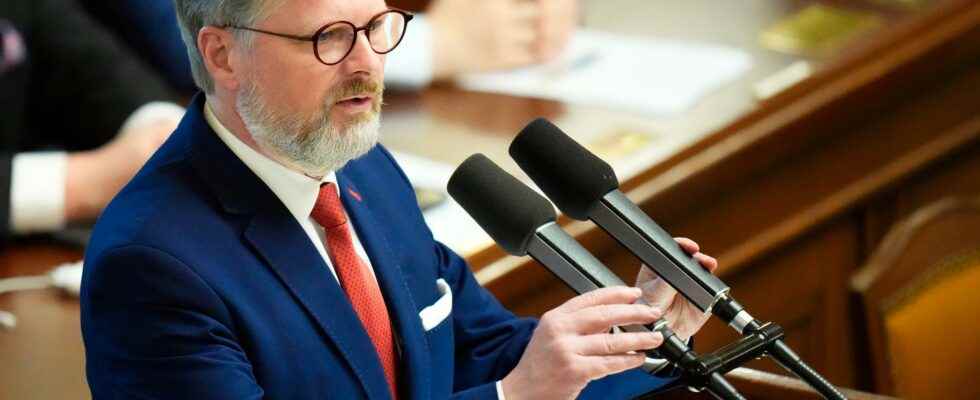Published: Just now
The Czech Republic takes over when France hands over the baton as chair of the EU Council of Ministers.
And six months away, Sweden is waiting.
After six months with President Emmanuel Macron and his government at the helm of all sorts of heavy EU negotiations, new names will take over from Friday.
Mainly Petr Fiala – 57-year-old Czech former university rector and Minister of Education who since November last year is Prime Minister of a broad coalition government.
Fiala’s party ODS (Citizens’ Democrats) belongs to the ECR, the same EU-skeptical conservative party family as the Sweden Democrats, but shares in the government with both Christian Democrats and pirate parties. The sprawling coalition was formed ahead of the election last autumn to remove the big business entrepreneur Andrej Babis from the post of prime minister.
Over the years, Babis has been widely criticized for corruption and its flank support to the political leaderships in neighboring Hungary and Poland. Under Fiala, instead, the Czech government is seen as more EU-friendly again, despite his party’s domicile in the ECR.
End of the war?
The Czech presidency will be largely marked by the continued Russian war in Ukraine.
The basic hope is that, after all, the war may soon be over so that discussions on the reconstruction of Ukraine can begin in earnest.
Although it is perhaps more wishful thinking than realism.
– The conflict is unlikely to end before the end of the Czech Presidency. “I think the Czechs will just try to organize a summit on Ukraine and persuade others to continue to help,” political analyst Jiri Pehe told AFP.
Sweden is waiting
Being the chair of the EU Council of Ministers otherwise means mainly six months as a “chief negotiator” to reach all kinds of agreements both internally between the member states and in discussions with the European Parliament.
For the Czech Republic, much of it will be about the major climate package presented by the European Commission last year, in which the various views will now be compromised.
However, it is highly unclear whether it will be possible to reach an agreement already in the autumn on, for example, future prospects for emissions trading (ETS), demands for more sustainable fuels in aircraft and ships and a stop to petrol and diesel cars from 2035.
If the agreement is delayed, the responsibility will instead pass to Sweden, which will take over as chairmanship on 1 January 2023.
Facts
EU Presidencies
The main task of the EU Presidency is to chair the Council of Ministers’ meetings and ongoing negotiations with the European Parliament and the European Commission. However, all the regular summits are being held in Brussels under the chairmanship of the Council’s permanent President, currently Belgium’s former Prime Minister Charles Michel.
The presidency rotates between all member states for six months at a time. This is what the list will look like in the coming six months:
Autumn 2022: Czech Republic
Spring 2023: Sweden
Autumn 2023: Spain
Spring 2024: Belgium
Autumn 2024: Hungary
Read more
